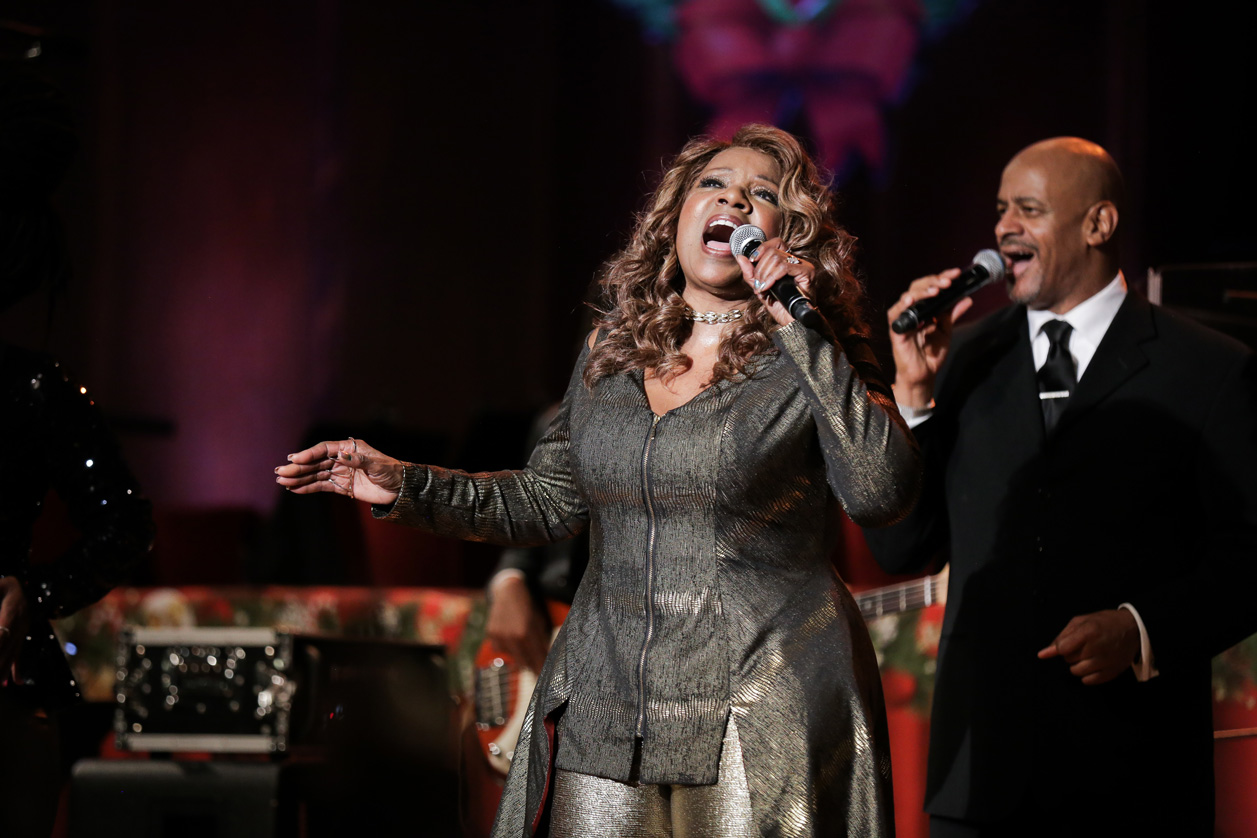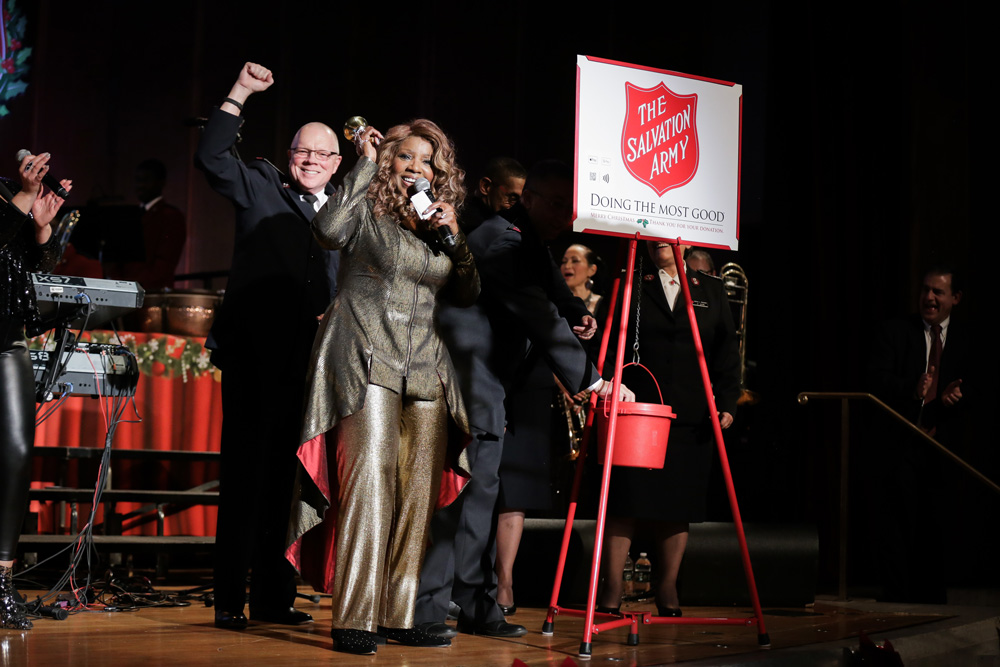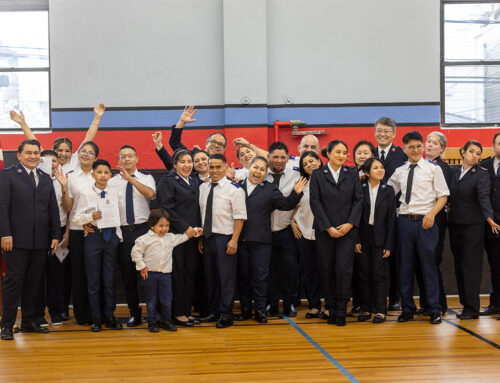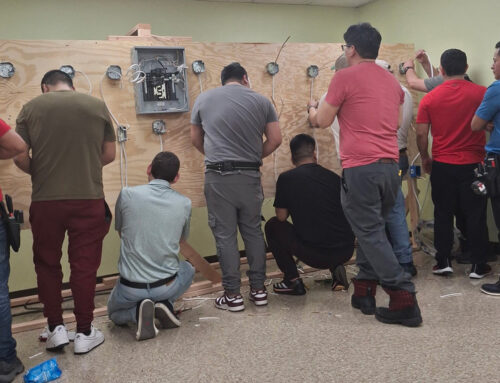
‘I Will Survive’ opens on Galentine’s Day
by Warren L. Maye
Love for Christ is a theme of the pre-Valentine’s Day (Galentine’s Day) release of I Will Survive. Hailed by critics as “mesmerizing,” the film documents the life of singer Gloria Gaynor and is titled after her signature song “I Will Survive,” which earned her a Grammy Award in 1980 for best disco recording. The film chronicles the explosive career, traumatic setbacks, and ultimate triumphs of this two-time Grammy Award winner and longtime friend of The Salvation Army.
In 2019 at The Salvation Army’s 72nd Annual Gala Concert, Gaynor performed alongside the Army’s youth band and choir with songs from Testimony, for which she earned a Grammy Award for best roots gospel album in 2020. Gaynor also sang “I Will Survive” to inspire people who receive the Army’s social services to face the daily challenges of scarcity and adversity.

Popular singers who have successfully transitioned from secular to gospel music are rare. Among them, even fewer have ever won the music industry’s highest honor. Today, Gaynor is counted in that small group, which includes the iconic Aretha Franklin.
However, what may put Gaynor in a class by herself is the depth to which her real-life testimony has brought an authentic and clearly Christ-inspired aspect to the music she sings.
The film, which will be a one-day Fathom Events release on Feb. 13, culminates with Gaynor’s Grammy Award win for her album Testimony, on which she co-wrote all the songs. “I’m so happy that artists nowadays are allowed to sing, to write, to produce, to engineer, to do whatever it is that their talent allows them to do well,” said Gaynor in an interview with SAconnects.
“What excites me the most about this documentary is that it gives me the opportunity to share my faith and to say, ‘thank you.’” Of her global fan base, she said, “They range from age 8 to 80 and are people who have supported me and have unknowingly helped add meaning and purpose to my life.”
Giving back, paying it forward
Throughout her career, Gaynor said, she has always wanted to give audiences something that would endure. “In my shows, I want to give people something that would outlive the duration of the concert. With this documentary, I want to give them something that will outlive the duration of my life and support them in their lives.”
Gaynor hopes her successful comeback from life’s devastating disappointments and a debilitating illness—and her spiritual victory—will help inspire other artists. “This documentary is also about the struggle to convince people that I could not only sing gospel music, but that it would not be just a one-off. I am serious about this. I know what I’m singing about. This is an integral part of my life, rather than just a whim.”
She believes God has sent people her way to help her climb this uphill journey in the face of intimidating odds. “Yes. There is no doubt in my mind,” she said emphatically. “My manager, Stephanie Gold, is in a divine appointment.”
Gaynor and Gold lovingly refer to each other as “sisters from another mister.” The documentary frequently flashes back to footage from Gaynor’s career, but in nearly every modern-day scene, the two women are shown in action together: in Gaynor’s home office, on the road, in her hospital room, in the airport, and in lavish concert halls.
If you can look up, you can get up
A chilling moment in the documentary comes when Gaynor describes her backbreaking fall at the Beacon Theater that left her paralyzed from the waist down. But it is her spiritual backbone and trust in God that empowered her to rise and take charge of her life and relationships.
“When people lead you, they lead you where they want you to go,” she said, referring to her long-term marriage, which ended in divorce. “You must be vulnerable to a point, but you must know what that point is. Whether it’s in business or a romantic relationship, you must know where the other person’s influence ends and where yours begins.
“You need to ask, ‘When we come together, are we like a lock and key or like a piece of glass and a hammer?’ Then you must decide and ask, ‘What do I want to do about it?’ I didn’t know what to do about it, so I turned to God, and I spent a year listening to Him, learning of Him.”
Reverend A.R. Bernard, pastor of the Christian Cultural Center in Brooklyn, N.Y., helped Gaynor grow in faith as her marriage deteriorated. “I quoted him so much in the documentary because what he’s said has been bricks in the foundation of my life,” Gaynor said. She has been a congregant in that church for 30 years. “I was still married when I started going there. But my husband did not want to go for counseling.”
Knowing what’s important
On the night Gaynor received her second Grammy Award, she was reminded of what truly matters in life. “When Kobe Bryant passed away, I was on the elevator going down to the Grammys,” she remembered. “When I was downstairs and on the red carpet, someone asked me what I thought about him and his passing. I didn’t know him, but people I knew who knew him said, ‘We should celebrate his life rather than mourn his death.’
“The fact of the matter is, we need to recognize how fragile and uncertain life is. Before you leave here, you need to determine where you are going, and if you qualify to get there. That’s what is most important.”




